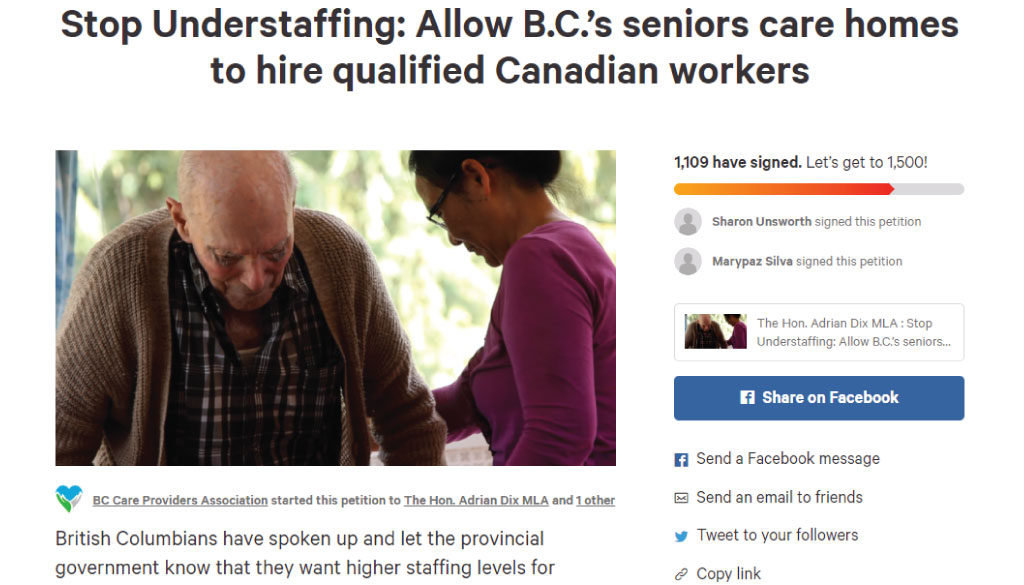In June, BC Care Providers Association (BCCPA) highlighted the significant challenges being faced by qualified Canadian care aides who are trying to find employment in B.C.’s health care sector.
Currently, fully trained and certified care aides from other provinces in Canada must navigate a costly new testing and registration regime. In order to find employment in publicly-funded care homes, care aide must pay $800 for a practical examination, as well as cover any travel costs to Vancouver—the only location offering the testing.
Due to the rigorous nature of the new regime, only one per cent of applicants are permitted to proceed without additional courses and training. This shocking statistic attracted a lot of discussion in the media.
An online petition created by BCCPA to bring attention to these unfair labour practices has generated significant interest. In just a few short weeks, over a thousand British Columbians have added their signature to the petition, requesting that the provincial government address staffing shortages by allowing care providers to hire qualified Canadian care aides.
The petition has highlighted the experiences of frontline workers like Rustam Mann, an Ontario trained care aide who moved to B.C. after being offered a job by a care home in the Okanagan. Mann quickly became frustrated when he encountered the credential recognition process created by the BC Care Aide and Community Health Worker Registry.
“I was absolutely amazed that I had to take two competency exams and pay over $1,400 to prepare for and get registered as a care aide in B.C.,” he said. “They used the same study materials as we did in Ontario. I had passed the course and was an active working care aide in Ontario.”
Support for the petition has come from British Columbians across the province, including family caregivers and frontline workers themselves. Many who signed the petition cite their personal frustrating with the staffing shortages that have become more prevalent in the sector due to worker shortages.
One nurse from Salt Spring Island said, “As a nurse with 40 years of experience, I have witnessed firsthand the effects of the shortage of care [workers]. Our patients and elders deserve our care, and our workers deserve to be able to go to work knowing that wards are fully staffed with an appropriate staffing mix. Many care [workers] are working long hours and on their days off because they do not want their patients to suffer from understaffing caused by vacancies.”
BCCPA continues to advocate for changes and has participated in numerous consultations with government representatives since members in the Interior declared an HHR emergency. We remain hopeful that the obstacles to employment created by the nursing assessment testing will be addressed.
When a senior rings the call bell, someone must be there to answer it.




